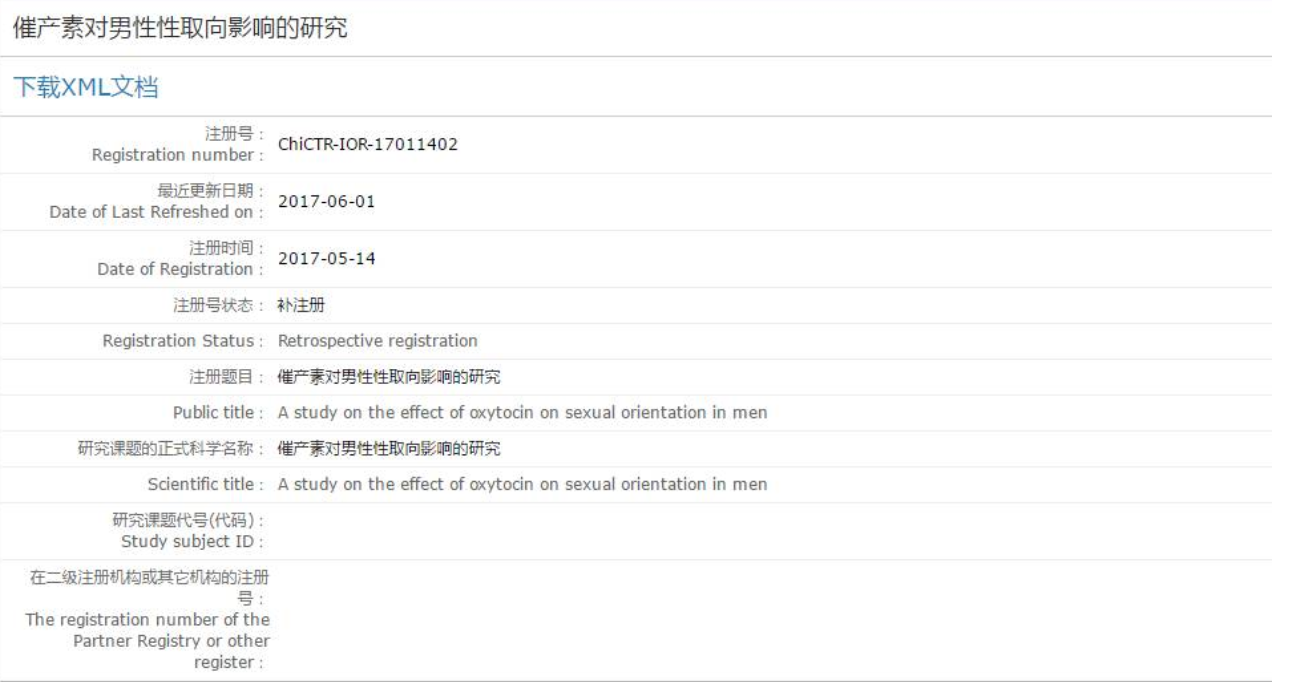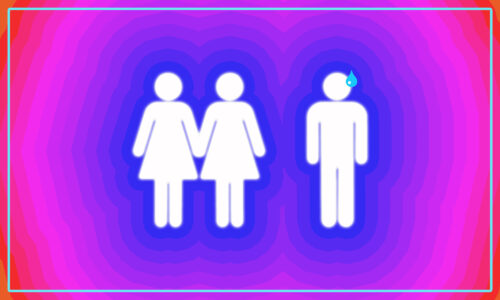What is the aim of a study of oxytocin’s impact on gay men?
What is the aim of a study of oxytocin’s impact on gay men?

A study by researchers at the Zhejiang University School of Medicine aims to figure out how oxytocin, also known as the “love hormone” or “cuddle hormone,” affects the sexual orientation of gay men. In an experiment, the substance was sprayed into the study participant’s noses.
The study, which was registered with the Chinese Clinical Trial Registry (ChiCTR) on May 14, 2017, is led by Hu Shaohua 胡少华, a psychiatrist and professor from Zhejiang University, one of the most prestigious institutions in China. According to information published on the registry’s website, the study aims to “research the feature of brain activity and social gender cognition in male homosexuals, and how oxytocin affects them.”
The study’s trial, which started on October 1, 2015, and will be concluded at the end of this year, was designed to be randomized, controlled, and carried out with two parallel groups of men (10 in each) who are aged 18-40 years old and are of “complete male homosexuality.” The 10 men in the experimental group are required to spray 24 international units of oxytocin into their noses, one unit for each minute. The 10 men from the control group will repeat the same act but with saline solution.
Oxytocin is a type of natural hormone that is normally associated with women because it can induce labor or strengthen labor contractions during childbirth. But it also has a wide range of social and physiological functions in the brains and bodies of all human beings regardless of gender. Studies have found that this powerful hormone is crucial to human interactions, as it can enhance trust and bonding between people.
Hu’s research is not the first attempt to study possible correlation between oxytocin and sexual orientation. For instance, in 2014, a group of German scientists conducted experiments on both homosexual and heterosexual men to examine the hormone’s impact on social approach behavior depending on “perceived sexual features and, consequently, on sexual orientation.”
But Hu’s study is particularly controversial due to its dubious objective. When the research information was initially released on the ChiCTR website, whoever filled out the application form wrote “male homosexual” in the blank space for “target disease.” This sparked a barrage of criticism online, with many furious internet users believing that the actual goal of the study is to seek treatment for homosexual orientation. A Chinese researcher from Massachusetts Institute of Technology, under the pseudonym Xiao Bo 小波, even penned an open letter (in Chinese) to the ethics committee that oversees the study, questioning why only homosexual men are involved in the research, given that “heterosexuality and homosexuality are two concepts indispensable to each other in a biological sense.”
In an effort to silence doubts, the research group redefined the experiment as a “basic study” instead of one that intends to cure a certain kind of disease.
- Chinese Traditional Medicine
China drug bureau to standardize traditional medicine names / Sixth Tone - Parenting
A grannie make-over: “Before and after leaving my kid with my mother-in-law” / What’s on Weibo
Jiangsu drafts for fairer parenting, more paternity leave / Sixth Tone - Child abuse scandal
RYB kindergarten abuse press release (translation) / What’s on Weibo - Internet addiction and abuse
Teens beaten, whipped and locked up in ‘dark room’ at digital detox camp / Caixin






